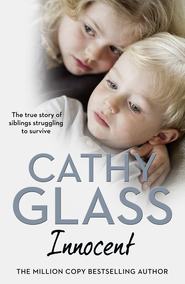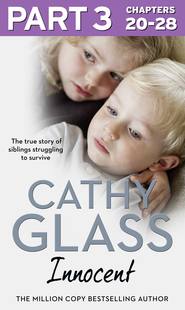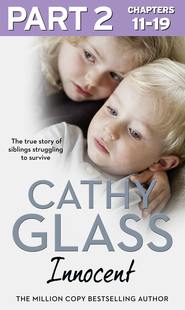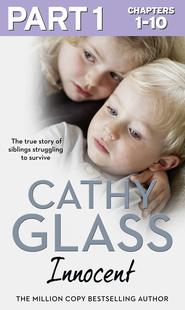По всем вопросам обращайтесь на: info@litportal.ru
(©) 2003-2024.
✖
A Long Way from Home: Part 3 of 3
Настройки чтения
Размер шрифта
Высота строк
Поля
‘Mrs Taylor,’ she said.
I wrote Mrs Taylor, Anna’s teacher. Interesting, as most children would have said Mummy. ‘You know you can always talk to me and tell me your worries?’ I said. Anna ignored me, so I moved to the final question. ‘Is there anything you want to ask?’
She shrugged, then said, ‘Will I go home?’ A question asked by most children in care and I wrote it down, but Anna was looking at me for a reply.
‘I don’t know, love,’ I said, ‘but for now I will look after you. You won’t have to move again until everything is sorted out.’
‘Will I have to go on a plane again?’
‘Not unless we all go on holiday.’
‘When can I see my mummy?’
‘Your adoptive mother?’ I clarified.
Anna nodded.
‘I’m not sure yet. Would you like to?’
‘Yes,’ she said quietly.
My heart clenched. ‘I’ll write that down too then: Anna would like to know when she can see her mummy,’ I said as I wrote.
But would her mother want to see her? I had no idea, but I sincerely hoped so.
Chapter Twenty-One
Review (#u4c9b156a-a813-50d9-92ac-3b444919ddad)
On Wednesday I met Jill in the reception of the council offices ten minutes before Anna’s review was due to start. We signed in the Visitors’ Book and then made our way up to the first floor. ‘Hopefully we’ll meet Anna’s parents,’ Jill said, voicing my thoughts.
‘Yes, indeed.’ Although I felt a familiar surge of nervousness at meeting the child’s parents for the first time.
Lori was already in the meeting room, seated at the large oak table next to a man she introduced as the Independent Reviewing Officer (IRO). LAC reviews are chaired and minuted by an IRO who is a qualified social worker with extra training, and unconnected with the social services. Jill and I gave him our names and roles – supervising social worker and foster carer – as we sat and he noted these. I handed him the review forms Anna and I had completed and he thanked me.
The door opened and Miss Rich came in carrying a folder. The child’s teacher or TA are usually invited to the review. Lori introduced her to the IRO and she sat on the other side of the table to Jill and me.
‘Are we expecting anyone else?’ the IRO asked Lori. She would have drawn up the list of those to invite and sent the invitations.
‘No,’ she said. ‘The parents aren’t coming.’ I was disappointed and also knew this didn’t bode well for any hope of Anna seeing them or returning home.
Sometimes there are many present at a review or, as with Anna’s, just a few. Even so, the formality is maintained. The IRO opened the meeting, thanked us for coming and then asked us to introduce ourselves. We went round the table stating our names and roles. Introductions over, he began by saying this was the first review for Anna Hudson, aged five, although it was her third foster care placement since coming into care. Background information like this would have been sent to him prior to the review. Then, as often happened in reviews, the IRO asked me as the foster carer to speak first, simply because the carer usually has the latest information on how the child is doing. I glanced at the page of notes I’d brought with me and felt my pulse quicken. Although there were only five of us, all eyes were on me and I took a breath. I always start by saying something positive about the child, even if they have very challenging behaviour.
‘Anna is eating well,’ I said, ‘has good self-care skills and is going to school each day. She is also sleeping well now and in her own bed.’
‘Well done,’ Lori said, appreciating the significance of this.
‘Where was she sleeping before?’ the IRO asked as he took notes.
‘With her parents in their bed,’ Lori said.
The IRO nodded and looked to me to continue.
‘Anna has some very challenging behaviour,’ I said, having exhausted the positives, ‘and I am working on that. She is used to doing as she wants and being in control. It’s taking time for her to learn that this isn’t always in her best interest. She resists adult authority and struggles to show affection either verbally or physically. For example, she hasn’t once said she misses her parents. She is also very confused about her past.’
‘In what respect?’ the IRO asked, looking up from writing. ‘She was under three when she was adopted.’
‘Yes, but the past is still very vivid for her and from what I have seen it has created a lot of confusion and insecurity in her. She’s not sure who her parents really are and quite recently asked if she would have to go on a plane again, meaning to return to the orphanage.’
‘Coming into care couldn’t have helped her confusion and insecurity,’ the IRO observed dryly as he made a note.
‘She’s been diagnosed with an attachment disorder,’ Lori put in. ‘We’ve made a referral to CAMHS [Children’s and Adolescent Mental Health Service] and the educational psychologist, but there is a waiting list for both.’
The IRO nodded and looked at me. ‘And presumably you reassure Anna and answer her questions as best you can?’
‘Yes, although she doesn’t really have many questions. She keeps it all bottled up.’
‘Why aren’t her parents here?’ the IRO now asked Lori.
‘Anna’s mother didn’t feel she could cope with it, and she wasn’t sure what good it would do. I’ve only just traced the father and he said he didn’t think he could contribute much to the meeting. Both parents are struggling with what has happened.’
The IRO made a note and looked to me to continue.
‘I am helping Anna with her school work and am working closely with Miss Rich, her TA.’ Miss Rich nodded. ‘Sometimes Anna is very resistant to learning and finds it difficult. She’s on a reduced timetable at school.’ I didn’t say any more about Anna’s education as Miss Rich would give her report later. ‘I try to involve Anna in my family’s life, but often she prefers to play independently – in the same room. She finds it difficult to make friends.’
‘You have children of your own?’ the IRO asked.
‘Yes, two.’
‘How does she get on with them?’
‘She doesn’t really,’ I had to say. ‘I’ve tried, and it’s early days yet, but she struggles to know how to make friends. It’s the same at school and other children are wary of her angry outbursts.’
‘Is she angry often?’ the IRO asked.
‘Yes.’
‘How does she show it?’
‘She screams, and tries to hit and kick people and throw objects.’
‘What does she get angry about?’ the IRO asked.
‘Anything she doesn’t want to do. I have to hold her sometimes when she is very angry to stop her from hurting herself or others. And you should know she can make things up. I’ve had a few incidents, which I’ve noted in my log, where Anna has said something that was blatantly untrue. Some of it she has repeated at school to her teacher and TA.’
‘For example?’ the IRO asked.
‘She said my son was bullying her.’
Другие электронные книги автора Cathy Glass
Innocent




 0
0











